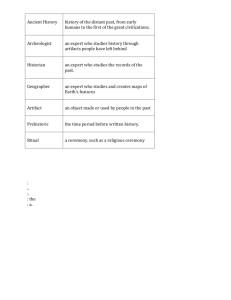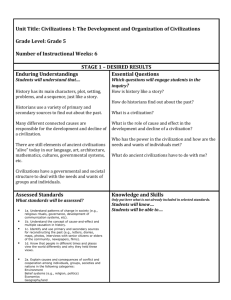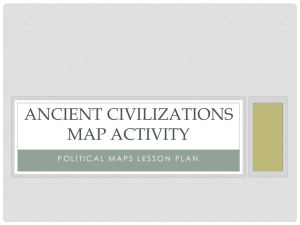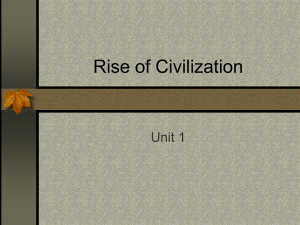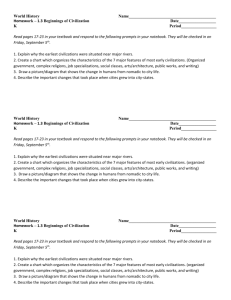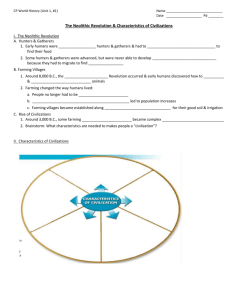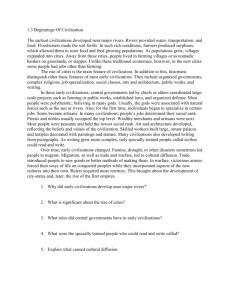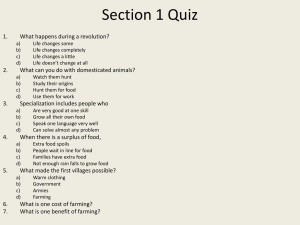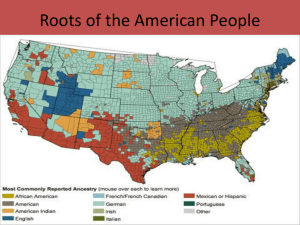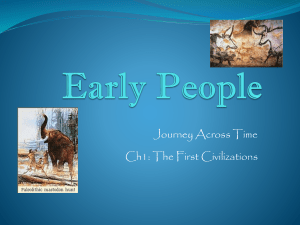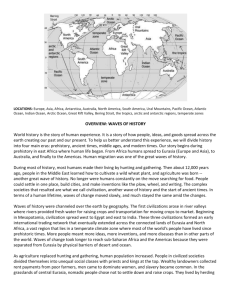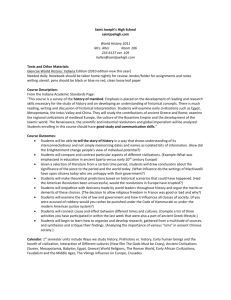Test Review
advertisement
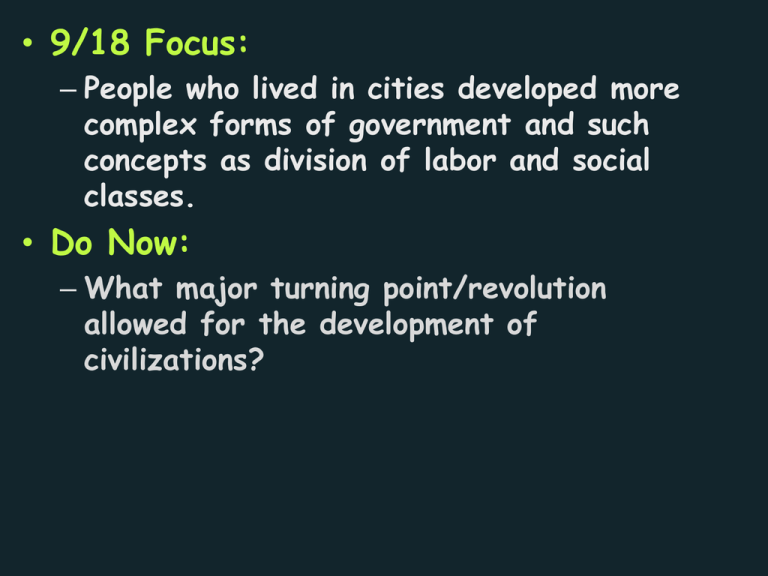
• 9/18 Focus: – People who lived in cities developed more complex forms of government and such concepts as division of labor and social classes. • Do Now: – What major turning point/revolution allowed for the development of civilizations? 1.Which aspect of social science would a geographer most likely study in depth? A. how beliefs influence the behavior of a group of people B. how economic events influence history C. how location influences the way people live D. how people influence governmental decisions 2. When studying ancient civilizations, a geographer would be most interested in looking at A. B. C. D. language as a form of expression family structure climatic influences on food production standards for leadership 3. Historians value the writings of Thomas Jefferson and Thomas Paine because they A. serve as primary sources about the American ideas about freedom and government B. provide the basis for American holy books C. include advice on how to be a enlightened despot D. present unbiased views of life in colonial America. 4. Which feature would most often be shown on a political map? A. B. C. D. topography type of climate capital cities elevation 5. How did the introduction of agriculture affect early peoples? A. B. C. D. Societies became nomadic. Food production declined. Civilizations developed. Birthrates decreased rapidly. 6. Presence of public works, art and architecture, organized religions, and systems of writings are associated with: A. B. C. D. Economic Development in Ancient Egypt Cultural Diffusion in Mohenjo-Daro Features of the Old Stone Age Characteristics of Civilizations Archeologist • Studies physical artifacts to provide us with insight into prehistory Psychologist • Concerned with the study of human behavior and the human mind Political Science • Study systems of government, law, and politics Geographer • Study the relationship between people and locations on the Earth; includes cartography Economists • Concepts such as scarcity, needs and wants, land, labor, and capitol are studied in this field of social science Anthropology • The study of humanity and human ancestors Sociology • The study of society and its institutions Nomadic • People who move from place to place in search of food and resources Civilization • A complex, organized society Fertile Crescent • A region from the Mediterranean Sea to the Persian gulf located between the Tigris and Euphrates rivers; farming believed to have started here Urbanization • The migration of people from rural areas to cities Traditional Economy • Economic system based around farming; economic decisions based on traditions and customs. Paleolithic Era • Nomadic People • Hunter/Gathers • Simple stone tools Neolithic Era • Development of farming and domestication of animals • Permanent settlements • Population increases Art/Architecture Organized Religion Cities Job Specialization Government Public Works System of Writing Social Classes • 9/20 Focus: – With the development of farming, ancient peoples gave up their nomadic lifestyles and established permanent settlements which grew into civilizations • Do Now: Which characteristic of civilization is shown in the image?
